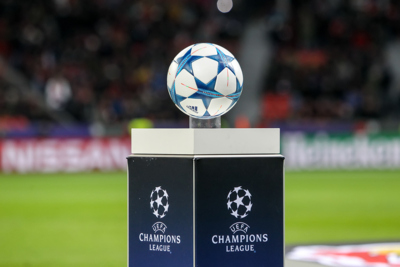
The Champions League is often thought of as being the pinnacle of club football. It’s the only tournament where the best teams in Europe play against each other in a league format, before then playing in a knockout stage.
It’s been running as the champions League since 1992, but the tournament has actually been running since 1955, where it was then known as the European Cup. The tournament runs each season and teams will be able to qualify based on their domestic league position in the previous season. The Champions League is only open to teams within the top flight of each nation’s domestic league.
The final is played at a neutral ground every year and UEFA, the governing body for the tournament, draw the venue out based on a bidding process. For the 2020/21 final, the Estadio do Dragao in Porto, Portugal will be hosting the event.
- In This Article:
- Qualifying
- Groups
- Knockouts
- Coefficient
- Draw
- TV
- Stats
- History
Champions League Recent Winners
| Season | Winner | Runner-Up | Score | Host |
|---|---|---|---|---|
| 2022/23 | Manchester City | Inter Milan | 1-0 | Istanbul |
| 2021/22 | Real Madrid | Liverpool | 1-0 | Paris |
| 2020/21 | Chelsea | Manchester City | 1-0 | Porto |
| 2019/20 | Bayern Munich | Paris Saint-Germain | 1-0 | Lisbon |
| 2018/19 | Liverpool | Tottenham Hotspur | 2-0 | Madrid |
| 2017/18 | Real Madrid | Liverpool | 3-1 | Kiev |
| 2016/17 | Real Madrid | Juventus | 4-1 | Cardiff |
| 2015/16 | Real Madrid | Atletico Madrid | 1-1 (Pens) | Milan |
| 2014/15 | Barcelona | Juventus | 3-1 | Berlin |
| 2013/14 | Real Madrid | Atletico Madrid | 4-1 (AET) | Lisbon |
| 2012/13 | Bayern Munich | Borussia Dortmund | 2-1 | London |
| 2011/12 | Chelsea | Bayern Munich | 1-1 (Pens) | Munich |
| 2010/11 | Barcelona | Manchester United | 3-1 | London |
| 2009/10 | Inter | Bayern Munich | 2-0 | Madrid |
| 2008/09 | Barcelona | Manchester united | 2-0 | Rome |
| 2007/08 | Manchester United | Chelsea | 1-1 (Pens) | Moscow |
| 2006/07 | Milan | Liverpool | 2-1 | Athens |
| 2005/06 | Barcelona | Arsenal | 2-1 | Paris |
| 2004/05 | Liverpool | AC Milan | 3-3 (Pens) | Istanbul |
| 2003/04 | Porto | Monaco | 3-0 | Gelsenkirchen |
| 2002/03 | AC Milan | Juventus | 0-0 (Pens) | Manchester |
Qualification Process
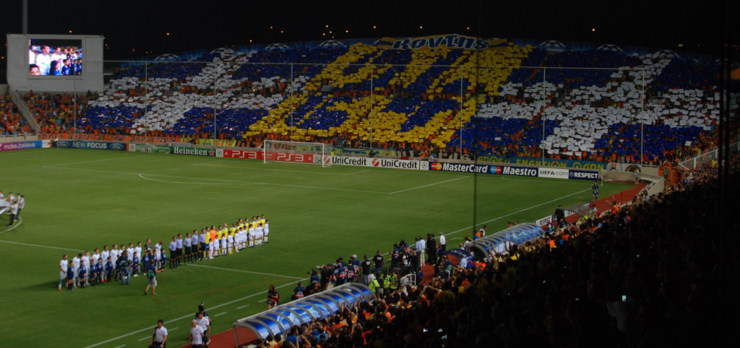
The qualifying procedure for the tournament is actually fairly complicated, so bear with us. The first thing that you need to be aware of is that each nation is given a ranking by UEFA. Based on the ranking will determine how many teams qualifying automatically and how many teams will need to play within the knockout phase leading up to the tournament proper.
Competition Entry
In total there are 32 teams that will make it into the Champions League proper. There are 22 teams that will automatically qualify for the group stages which are a mix of champions and highest placed finishes. The top 12 champions from the associations ranked 1-12 will all qualify automatically. The 6 runners from associations 1-6 will qualify automatically, as will the 3rd place teams from associations 1-3. The final automatic qualifier is the winner of the previous year’s Champions League.
Preliminary Rounds
There are 3 qualifying rounds in total, followed by a play-off round. The first qualifying round will include the 8 champions from associations ranked 47-54. The winners will then progress to the second qualifying round where 30 champions from associations 16-46 will be included.
The third qualifying round will be made up of 30 teams in total, which include 3 champions from associations 13-15, 9 runners-up from associations 7-15 and 1 third place team from association 6.
Finally, the play-off round will include all the winners from the previous round, p’us 2 third place finishers from associations 4-5, 3 fourth placed teams from associations 1-3 and the UEFA Europa League winners from the previous season.
The highest number of automatic qualifiers for the Group Stage (3) go to Spain, England and Italy, who are the highest ranked associations of UEFA. Germany, France and Russia all get 2 automatic positions each.
Group Stages
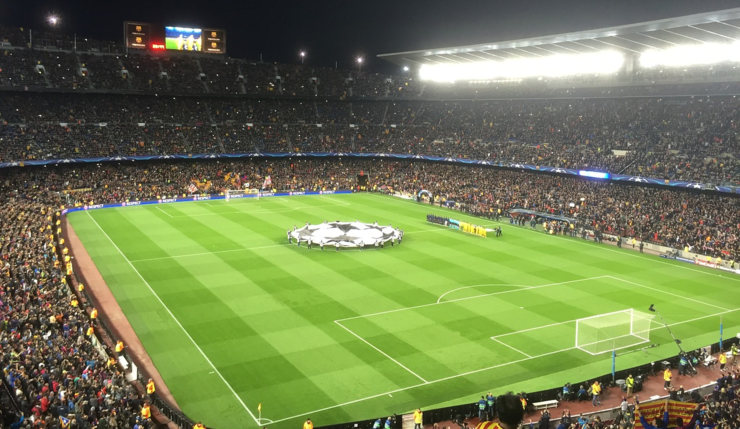
The group stages are regarded as the Champions League ‘proper’. The qualification rounds have finished and we are down to our final shortlist of 32 teams. These teams are broken down into 8 groups of 4. Each team plays each other twice within that group, both home and away, with standard football points scoring; 3 points for a win, 1 for a draw and zero for a loss.
The top two ranked teams within each group will go through to the knockout phase and where two or more teams are tied on points, the team with the highest number of goals scored progress. Any teams at this stage that finish third in the group will be put into the draw for the next round of the Europa League. Teams finishing fourth will be eliminated from all European competitions for the season.
It’s worth noting that the draw for the group stages is a little more complicated than simply pulling names randomly out of a hat. Teams will be seeded based on UEFA points scoring and this means that these teams can’t be drawn in the same group together. Also, any teams from the same associations can’t initially be drawn in the same group together.
Champions League Groups – 2020/21 Season
| Group | 1st Seed | 2nd Seed | 3rd Seed | 4th Seed |
|---|---|---|---|---|
| A | Bayern Munich | Atletico Madrid | Red Bull Salzburg | Lokomotiv Moscow |
| B | Real Madrid | Shakhtar Donetsk | Inter Milan | B. Monchengladbach |
| C | FC Porto | Manchester City | Olympiacos | Marseille |
| D | Liverpool | Ajax | Atalanta | Midtjylland |
| E | Sevilla | Chelsea | Krasnodar | Rennes |
| F | Zenit Saint Petersburg | Borussia Dortmund | Lazio | Club Brugge |
| G | Juventus | Barcelona | Dynamo Kyiv | Ferencvaros |
| H | Paris Saint-Germain | Manchester United | RB Leipzig | Istanbul Basaksehir |
Knockout Rounds
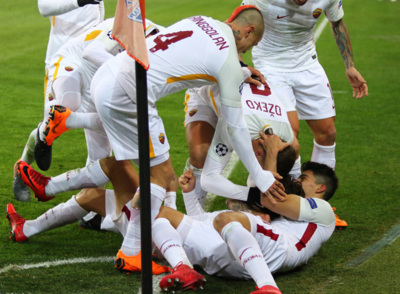
The knockout stages immediate follow the group stages. The first round of knockout games includes 16 teams, which are the winners and the runners-up from the group stage. At this point a winner from a group will be drawn against a runner-up from a group. But, teams from the same associations are still prohibited from playing against each other, with the draw being adjusted to reflect this where needed.
All knockout games from the last 16 right through to the semi-finals are played over 2 legs, with a home and away tie for each team. If needed after the second leg, extra time and penalties will be played out if the scorers are the ties.
From the quarter-finals onwards, the draw is made totally at random for the first time, meaning that teams from any country or any association could potentially play against each other. This carries through to the semi-final as well.
The final is a one-off game at a neutral venue. Again, if the score is tied after 90 minutes, extra time will be played and if a result still can’ be found, penalties will be played. Away goals do not affect the final in any way due to it being played at a neutral venue.
UEFA Coefficient
The UEFA coefficient is basically UEFA’s way of ranking teams within Europe. These are based on performances in all UEFA sanctioned club competitions, such as the Champions League and the Europa League.
The club points are stretched over a 5 year period and in that time clubs are able to rack up points from a number of different sources. The points structure that UEFA uses for the Champions League is listed below:
- First Qualifying Round Elimination – 0.5 points
- Second Qualifying Round Elimination – 1 point
- Group Stage Bonus Participation – 4 points
- Group Stage Win – 2 points
- Group Stage Draw – 1 point
- Round of 16 Bonus Participation – 4 points
A few points that you need to be aware of is that clubs will be awarded additional points for any last 16, quarter final, semi-final or final appearance, and that points aren’t awarded for elimination in the 3rd qualifying round or the play-offs as these teams will be entered into the Europa League where they will be able to earn additional points.
Clubs who have qualified for the group stage of the Champions League will then be ranked based on their coefficients standing. The higher the number of points, the higher the teams rank. The top 8 ranked teams will not be able to play against each other in the group stages.
The process is very similar in terms of how many teams are able to qualify, in that each league will be awarded points. Again, points will stretch over UEFA sanctioned involvement over the last 5 years and taken from that. The points structure is as follows:
- Each team gets two points for a win and one point for a draw (points are halved for matches in the qualifying and play-off rounds).
- Clubs that reach the round of 16, quarter-finals, semi-finals or final of the UEFA Champions League, or the quarter-finals, semi-finals or final of the UEFA Europa League, are awarded an extra point for each round.
- In addition, four points are awarded for participation in the group stage of the UEFA Champions League and four points for qualifying for the round of 16.
The coefficient then takes an average score of each association total points based on both UEFA and Europa League standings over the 5 years. Depending on how many teams are representing that association for the upcoming year will be the number in which the total points are divided by. If two associations have the same number of points for ranking purposes, then the team with the highest score from the previous season will be the higher ranked. Below are the current top 10 ranked coefficients from the end of the 2020/21 season:
UEFA Club Coefficient: Top 10 Nations – End 2020/21 Season
| Country | Total | 2020/21 | 2019/20 | 2018/19 | 2017/18 | 2016/17 |
|---|---|---|---|---|---|---|
| England | 100.283 | 24.071 | 18.571 | 22.642 | 20.071 | 14.928 |
| Spain | 97.855 | 19.500 | 18.928 | 19.571 | 19.714 | 20.142 |
| Italy | 75.438 | 16.285 | 14.928 | 12.642 | 17.333 | 14.250 |
| Germany | 73.570 | 15.214 | 18.714 | 15.214 | 9.857 | 14.571 |
| France | 56.081 | 7.916 | 11.666 | 10.583 | 11.500 | 14.416 |
| Portugal | 48.549 | 9.600 | 10.300 | 10.900 | 9.666 | 8.083 |
| Netherlands | 39.200 | 9.200 | 9.400 | 8.600 | 2.900 | 9.100 |
| Russia | 38.382 | 4.333 | 4.666 | 7.583 | 12.600 | 9.200 |
| Belgium | 36.500 | 6.000 | 7.600 | 7.800 | 2.600 | 12.500 |
| Austria | 35.825 | 6.700 | 5.800 | 6.200 | 9.750 | 7.375 |
Champions League Draw
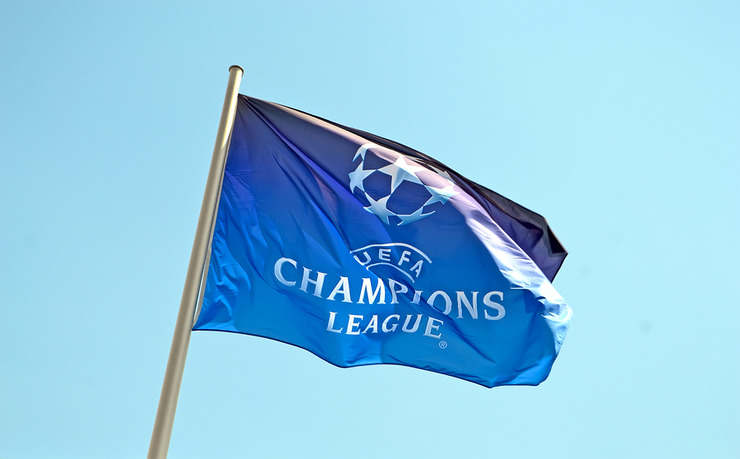
The draws for the Champions League games are far from straight forward. Where you see tournaments like the FA Cup simply stick all remaining teams into a hat and then pull them out one by one, the Champions League is very different.
As we have mentioned, the first thing to remember is that teams who are seeded from 1-8 and who are in the same association cannot be drawn together within the group stages. But, it even in the early qualifying rounds there are certain restrictions that are in place.
Again, teams from the same association can’t be drawn together. Also, in the third qualifying round the teams are split into two separate sections that include the champions route for teams that have won their respected leagues and the league route for teams that aren’t champions. These teams play off against other teams that are in the same circumstances.
The draws will continue in this manner all the way through to the quarter finals, which is the first round where all the remaining teams are put into a hat and are drawn out at random, with any team being able to play any team. All draws are made from UEFA Headquarters in Nyon, Switzerland.
TV Coverage

The TV Rights for the Champions League is obviously a very lucrative contract to acquire. UEFA basically sell off a host of packages to TV companies that they then bid on accordingly. Each package is sold in 3 year bundles with a mix of free and pay television under the UEFA and European Union agreement.
For many years Sky and ITV have had covered the Champions League, but since 2013, the rights have gone to BT Sport. They have since extended this contract to show all Champions League fixtures until 2021, costing the broadcaster almost £1.2 billion.
What’s been interesting to see is that BT have actually seen a drop in viewing figures since they first jumped on board in 2013, but have been able to offer up streaming packages on platforms such as YouTube. They were widely applauded for showing both the 2016 and 2017 Champions League final on YouTube, completely free of charge. They are also keen to make a free highlights package for social media as well.
The latest contract is also important in that no free to air company have been appointed the highlights package, which ITV had secured for a number of years alongside Sky Sports. It’s thought that their agreement to show highlights package via streaming online was sufficient for the powers that be.
Throughout Europe a similar deal is offered to TV companies, where a pay to watch and free to watch company are both able to bid on the process. In Spain, the likes of beIN Sport have the paid viewers, whilst Atresmedia – TV3 have the free to view package. Italy, France, Germany and Portugal have similar set ups for their TV rights. In the USA, Fox have been able to purchase both the free to air and paid to air packages showing games on different channels within their network.
Statistics
As you can imagine, there are some pretty crazy stats that surround the Champions League. In this next section we will go through some of the more popular ones, but it’s worth remembering that these stats will include the original European Cup as well as the Champions League, as they are essentially the same competition, just rebranded.
The most successful club in the history of the competition is Spanish giants, Real Madrid. Real have won it on 13 separate occasions, with their first coming 1956 and their most recent coming in 2018. They’ve also been runner-up 3 times, which highlights their success rate in finals. Real Madrid are also the only team to have won consecutive Champions Leagues. After winning in 2016, they managed to repeat the task for the first time ever in 2017 and again in 2018.
Most Successful Champions League/European Cup Teams
| Club | Wins | Finals | First Victory | Last Victory |
|---|---|---|---|---|
| Real Madrid | 13 | 16 | 1956 (vs Stade Reims) | 2018 (vs Liverpool) |
| AC Milan | 7 | 11 | 1963 (vs Benfica) | 2007 (vs Liverpool) |
| Bayern Munich | 6 | 11 | 1974 v (Atletico Madrid) | 2020 (vs PSG) |
| Liverpool | 6 | 9 | 1977 (vs B. M’gladback) | 2019 (vs Tottenham) |
| Barcelona | 5 | 8 | 1992 (vs Sampdoria) | 2015 (vs Juventus) |
| Ajax | 4 | 6 | 1971 (vs Panathanaikos) | 1995 (vs AC Milan) |
| Manchester Utd | 3 | 5 | 1968 (vs Benfica) | 2008 (vs Chelsea) |
| Inter Milan | 3 | 5 | 1964 (vs Real Madrid) | 2010 (vs Bayern Munich) |
| Juventus | 2 | 9 | 1985 (vs Liverpool) | 1996 (vs Ajax) |
| Benfica | 2 | 7 | 1961 (vs Barcelona) | 1962 (vs Real Madrid) |
| Nottingham Forest | 2 | 2 | 1979 (vs Malmo) | 1980 (vs Hamburg) |
| FC Porto | 2 | 2 | 1987 (vs Bayern Munich) | 2004 (vs Monaco) |
Player Records
The top goalscorer in the competition is Cristiano Ronaldo, with a staggering 134 goals from 176 appearances. He is closely followed by his long-time rival, Barcelona’s Lionel Messi, with 120 goals from 149 appearances. But, neither of these two have the highest goals per game ratio, with this award going to Alfredo Di Stefano, one of the most iconic players for Real Madrid. Throughout the 9 years he was with the club, Di Stefano scored 49 goals in 58, giving him a ratio of 0.84 goals per game, better than Lionel Messi. The table below show the top all-time record goalscorers in both the Champions League and European Cup up until the end of the 2020/21 season.
Champions League/European Cup Record Goalscorers
| Player | Total Goals (Appearances) |
Champions League Record by Club | |||
|---|---|---|---|---|---|
| Team | Years Played | Goals | Games | ||
| Cristiano Ronaldo | 134 (176) |
Juventus | 2018-Present | 14 | 23 |
| Real Madrid | 2009-2018 | 105 | 101 | ||
| Manchester United | 2003-2009 | 15 | 52 | ||
| Lionel Messi | 120 (149) |
Barcelona | 2004-Present | 120 | 149 |
| Robert Lewandowski | 73 (96) |
Bayern Munich | 2014-Present | 36 | 68 |
| Borussia Dortmund | 2010-2014 | 17 | 28 | ||
| Raul | 71 (142) |
Schalke 04 | 2010-2012 | 5 | 12 |
| Real Madrid | 1994-2010 | 66 | 132 | ||
| Karim Benzema | 71 (130) |
Real Madrid | 2009-Present | 59 | 111 |
| Olympic Lyonnais | 2004-2009 | 12 | 19 | ||
| Ruud van Nistelrooy | 56 (73) |
Real Madrid | 2006-2010 | 13 | 19 |
| Manchester United | 2001-2006 | 35 | 43 | ||
| PSV Eindhoven | 1998-2001 | 8 | 11 | ||
| Thierry Henry | 50 (112) |
Barcelona | 2007-2010 | 8 | 26 |
| Arsenal | 1999-2007 | 35 | 77 | ||
| Monaco | 1994-1999 | 7 | 9 | ||
| Alfredo Di Stefano | 49 (58) |
Real Madrid | 1953-1964 | 49 | 58 |
| Thomas Muller | 48 (124) |
Bayern Munich | 2009-Present | 48 | 124 |
| Andriy Shevchenko | 48 (100) |
Chelsea | 2006-2008 | 4 | 15 |
| AC Milan | 1999-2006 | 29 | 59 | ||
| Dynamo Kiev | 1994-1999 | 15 | 26 | ||
| Zlatan Ibrahimovic | 48 (120) |
Paris Saint-Germain | 2012-2016 | 20 | 33 |
| AC Milan | 2010-2012 | 9 | 16 | ||
| Barcelona | 2009-2010 | 4 | 10 | ||
| Inter Milan | 2006-2009 | 6 | 22 | ||
| Juventus | 2004-2006 | 3 | 19 | ||
| Ajax | 2001-2004 | 6 | 19 | ||
| Eusebio | 47 (63) |
Benfica | 1960-1975 | 47 | 63 |
Ronaldo also holds the record for the most goals in a single campaign, with 17 in the 2013-14 edition of the competition. Ronaldo actually has the top 3 position in goals per season with second place 16 in the 2015/16 season and third place 15 goals in the 2017/18 season.
It probably comes as little surprise to hear that a Real Madid player holds the most appearances in the competition, given the club’s dominance. This is down to Spanish goalkeeper, Iker Casillas. Casillias’ record of 177 appearances does include his time with Porto as well, but the majority of games were with Real Madrid. Other notable mentions are Cristiano Ronaldo in second place with 176, Xavi of Barcelona with 151, Raul with 142 and Ryan Giggs in fifth with 141.
British Clubs
England’s most successful teams boil down to two north-west rivals in Manchester United and Liverpool. The latter have managed to win it on 6 separate occasions, with Manchester United winning it 3 times. Other English based winners include Chelsea, Nottingham Forest and Aston Villa. Scotland has only one European Cup winner, Celtic in 1967. This was the first European Cup win by a British side.
History
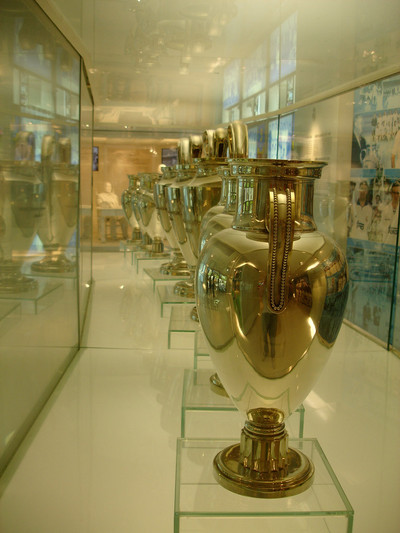
The European Cup was first started in 1955. The cup was set up after pressure from several teams across Europe mounted on UEFA to get something official in place. Previously, there had been the likes of the Challenge Cup, The Mitropa cup and several others running through the twenties, thirties and forties.
Some of the claims were becoming a little farcical to say the least, with Wolverhampton Wanderers claiming they were the “Champions of the World” after several friendly wins against European opposition. This was the final nail in the coffin for UEFA, who decided in 1955 that the European Champions Club’s Cup was to be run from the following season.
The inaugural competition had just 16 teams involved, including the likes of Real Madrid, Milan, Hibernian and Sporting CP. The tournament was run as straight knockout between the 16 teams. Real Madrid finally prevailed as champions, beating Stade de Remis in the final 4-3.
In 1992, it was decided that the European Cup, as it was then known, need a fresh lease of life. UEFA brought on board Television Event and Media Marketing to help them with their Champions League concept. This include the likes of the now famous Champions League anthem, the house colours and the star ball. Even over 25 years later, all of this is still very recognisable within the Champions League campaign.
Whilst the commercial issues were all taken care of, they also decided that a change of format was needed and removed the knockout feature for a round robin style. The number of teams were increased to 32 and split up into groups of 4, very much as you see it today.
The same trophy has been awarded to winning team since 1967. The original trophy was actually given to Real Madrid in 1966 after they had managed to win it for a record 6th time. The club don’t actually get to keep the original trophy, nor do they in fact see it at all, as it stays with UEFA at all times. Teams that have won it on 3 or more occasions get a life size replica to keep, of which 6 teams have done so previously. The winning team also get 20 gold medals to distribute to players and the losing team get 20 silver medals.
Real Madrid
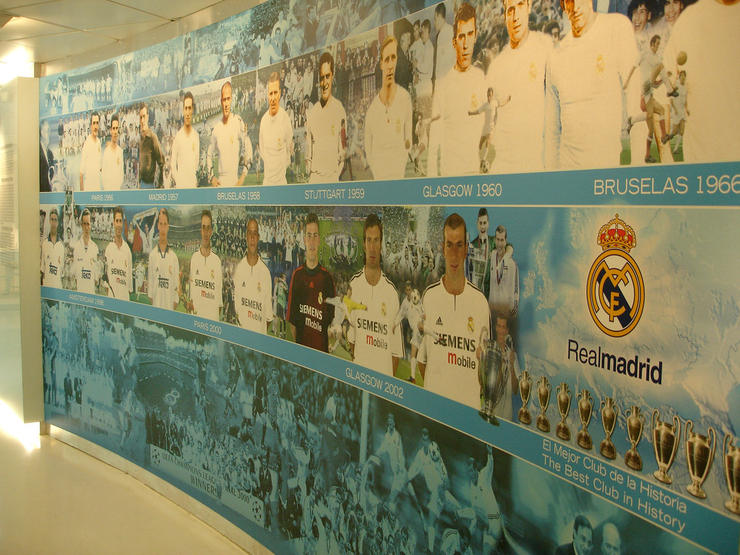
Real Madrid are hands down the most successful team in the history of the Champions League. They won the first five tournaments between 1956 and 1960. They also won four times in five seasons between 2014 and 2018. In total they have managed to pick 13 titles, 5 more than AC Milan in second place.
They’ve been lucky in that they have fielded some of the best players to have played the game. Iker Casillas (goalkeeper) has the most appearances in the competitions history and Cristiano Ronaldo (forward) has the most goals. But, other notable mentions must of to the likes of Raul, Roberto Carlos, Ruud van Nistelrooy, Karim Benzema and Zinedine Zidane, who have all featured on many Champions League record books for various achievements.
Celtic

Celtic are a club that are steeped in history and tradition when it comes to the European Cup. They were the first British winners of the cup and only Scottish winner’s way back in 1966/67 season, beating Internationale in the final 2-1.
On the way to the final they manged to fend off some of the biggest names in Europe, including Nantes, Dukla Prague, Zurich and then finally Inter Milan. They were blessed with a very talented squad, that included the likes of Stevie Chalmers, Tommy Gemmell and Jimmy ‘Jinky’ Johnstone to name but a few, all under the stewardship of Jock Stein.
Liverpool
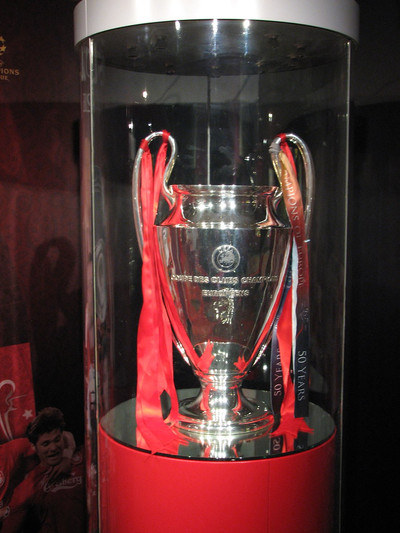
Liverpool are the most successful British team in Champions League history, winning the tournament on 6 separate occasions. The first of those wins came about in the 1976/77 season, before winning it again in 1977/78 season.
The seventies were widely regarded as the most successful in the clubs history, lead by their then manager Bob Paisley. It was Paisley who transformed the club and was able to bring in the likes of Kenny Dalglish, Alan Kennedy, Graeme Souness and John Toshack, to name just a few.
Throughout the eighties this success continued, with 2 more wins in 1980/81 and 1983/84. Their dominance throughout this time was almost unrivalled and Liverpool were deemed to be one, if not the best team in Europe.
After the 1983 win, the club went on somewhat of a hiatus within the Champions League. It took them over 20 years to regain the trophy, winning one of the most dramatic finals of all time in 2004/05. The team found themselves 3-0 to an in-form AC Milan team at half time, before eventually puling it back to 3-3 and then winning the penalty shootout.
Liverpool last lifted the trophy in 2019, beating Tottenham Hotspur 2-0 in an all English final. In the semi-final The Reds famously overturned a 3-0 first leg deficit against Barcelona with a 4-0 victory at Anfield to take them to their second successive final.
Manchester United
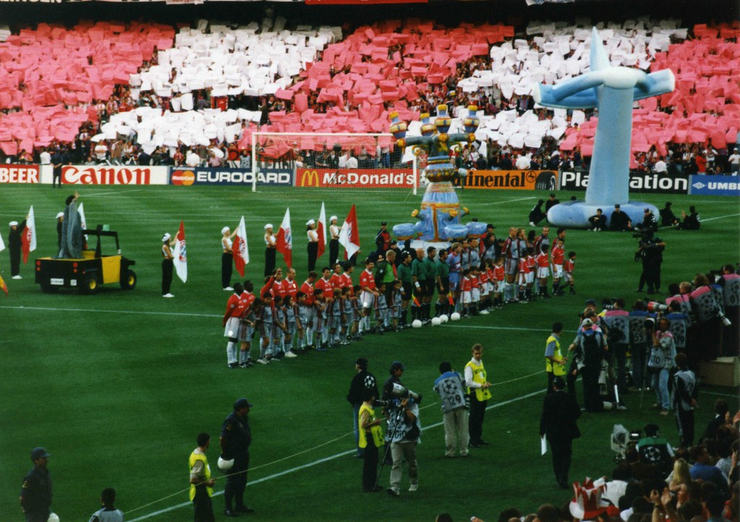
Manchester United run Liverpool to a close second in terms of success in Europe. They’ve won the tournament 3 times previously, but they have been able to win it twice within the new ‘Champions League’ format that developed from the European Cup.
Their first win came in the 1967/68 season, which was interestingly just their second European Cup appearance in 3 seasons. The team included some of the genuine all-time greats of game including George Best, Bobby Charlton and Nobby Stiles.
Their second win didn’t come until the 1998/99 season, this time managed by Sir Alex Ferguson. The final was another iconic moment in sporting history, where, trailing 1-0 with just 5 minutes left on the clock, two goals from Ole Gunnar Solksjaer and Teddy Sheringham completed a remarkable turnaround to seal the win for United.
Their third and final win was against bitter rivals Chelsea in 2008. Eventually winning the tie on penalties after the game finshed 1-1 in normal and extra time.